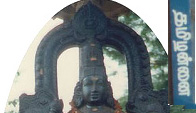
Somu: What's up, Somu? Is your travel tiredness is gone?
ராமு - ஆமாம் மாமா! ராத்திரி நல்லா தூங்கினேன். களெப்பெல்லாம் போயிட்டு. நேத்து கஸ்டம்ஸலெ வேற ஒரு மணி நேரம் நின்னுக்கிட்டே காத்துக்கிட்டு இருக்க வேண்டியாதாப் போச்சு!
Ramu: Yes, uncle! I slept very well last night. The tiredness is all gone now! I had to wait in a long line in the customs yesterday.
சோமு – எத்தனெ மணி நேரம் விமானத்திலெ வரவேண்டியிருந்துது?
Somu: How long had you have to travel in the airplane?
ராமு - கிட்டத்தட்ட பத்தொன்பது மணிநேரம். விமானத்துலெ உக்காந்துக்கிட்டே வந்ததுலெ காலெல்லாம் ஒரு வலி! ஒடம்பு வலி உயிர் போகுது! வெண்ணீருலெ குளிச்சதுலெ இப்போ கொஞ்சம் பரவாயில்லெ.
Ramu: About ninteen hours! My legs are hurting, as I had to sit in the plane so long! My body hurts like hell! Now I am okay, as I had a shower in the hot water.
சோமு – எந்த விமானத்துலெ வந்தே? எந்த வழியா வந்தே?
Somu: Which airline did you take and which route?
ராமு - சிங்கப்பூர் ஏர்லைன்ஸ்லெ வந்தேன். நியூவர்க்லேருந்து சிங்கப்பூர் பதினாறு மணி நேரம்! சிங்கப்பூர்லெ இரண்டு மணிநேரம் சென்னை விமானத்துக்காக காத்துக்கிட்டிருந்தோம். அப்பறம் சிங்கப்பூருலேருந்து சென்னைக்கு மூணு மணி நேரம்!
Ramu: I came in Singapore airlines! I travelled from Newark, US to Singapore for sixteen hours. I had to wait for two hours in the Singapore airport before taking the Chennai plane! Then, it took three hours to reach Chennai from Singapore.
சோமு - விமானத்துலெ தூங்க முடிஞ்சுதா? சாப்பாடெல்லாம் எப்படி இருந்துது?
Somu: Were you able to sleep in the plane? How was the food in the airplane?
ராமு - பக்கத்துலெ ஒரு ஆள் கொறட்ட விட்டுத் தூங்கிக்கிட்டிருந்தார்! ஒரே கொறட்டச் சத்தம். தூங்கவே முடியெல. அப்பப சாப்பாடு அது இதுண்ணு கொண்டு வந்து கொடுத்து கொஞ்சத் தூக்கத்தெயும் கெடுத்துட்டாங்க!
Ramu: Ya! There was a guy next to me snoring all along! Too much snoring noise! I could bearly sleep! Now and then airhostesses served food of one kind or the another and spoiled even the slightest sleep I had.
சோமு – நெறய தண்ணி குடிச்சிக்கிட்டே இரு. இன்னும் ரெண்டு நாள்ளெ பயணக் களெப்பெல்லாம் போயிடும்.
Somu: Keep drinking lots of cold water! You will be able to relieve from all your travel tiredness in two days!
- Grammar Notes:
Make sentences using the following words and expressions:
1) பயணக் களைப்பெல்லாம் போயிட்டா?
2) வலி உயிர் போகுது!
3) இப்போ கொஞ்சம் பரவாயில்லெ.
4) கொறட்டச் சத்தம். தூங்கவே முடியெல
5) சாப்பாடெல்லாம் எப்படி இருந்துது?
- Cultural Notes:
Influence of Sanskrit in Tamil
Tamil is believed to have borrowed words and phrases from the Sanskrit language from the sixth century A.D. onwards when structured temples and imitating the traditions of the North started to emerge in Kanchipuram and Mahapalipuram, two major centers of Tamil civilization. Until then, Tamil experienced its own indigenous qualities and characteristics, which are evident from the most celebrated Sangam classic literatures which are dated before the sixth century A.D. The celebrated epics such as Cilappathikaram, Manimekalai, the many compilations of poems such as Thirukkural, Purananuru, Akananuru, Kalittokai, the grammars of Tokappiyam, Nannul and their commentaries from Neminatham, Swaminatham etc., as well as a host of others are considred to be the invaluable treasures of the Tamil language and culture. This is because they were composed in the Tamil land for the Tamils without any influence from other languages and cultures.
However, the growth of religious sects, namely Vaishnavism and Saivism, among the Tamils along with the Agamic traditions of Temple culture made a considerable impact upon the Tamil language and culture. Many words from the Sanskrit language became part of the literary langauge first, and later the spoken language. The equilvalent Tamil words became less popular, and even forgotten by many Tamil speakers. A new style of the Tamil language called Manippravala, a mixture of vernacular language and Sanskrit language, came into existence in the South Indian languages Malayalam, Kannada, Telugu and Tamil. This style was used in Tamil widely until the end of ninteenth century, but started to weaken due to enormous pressures from the Tamil purism movement. Despite this, many Sanskrit words are still current in the language. Following are some of the pairs where the Sanskrit counter parts are used in speech more commonly than their Tamil equivalents.
கோபம் and சினம் 'anger'
சந்தோஷம் and மகிழ்ச்சி 'happiness'
சௌக்கியம் and நலம் 'health'
வருத்தம் and உளைச்சல் 'sadness'
மனம் and உள்ளம் 'mind'
யோசனை and எண்ணம் 'thought'
வெட்கம் and நாணம் 'shame'
கஷ்டம் and அல்லல் 'suffer from difficulties'
ரொம்ப and மிக 'much'
நமஸ்காரம் and வணக்கம் 'greetings'
The proponents of the 'Pure Tamil movement' have been attempting to promote the use of pure Tamil words instead of the Sanskrit equivalents in speech as well as writing, but without tremendous success so far. Using pure Tamil and avoiding the Sanskrit words in one's speech or writing generally results an artificial speech which is difficult for most to understand. To cite an example, the sentence வாழ்க்கையில் சந்தோஷமே இல்லாமல் கோபமும் வருத்தமுமாக ரொம்பவும் கஷ்டப்படுகிறேன் is more natural than its pure Tamil equilvalent வாழ்க்கையில் மகிழ்ச்சியே இல்லாமல் சினமும் உளைச்சலுமாக மிகவும் அல்லல் படுகிறேன் 'I suffer too much from too much anger and sadness without any happiness in life .'